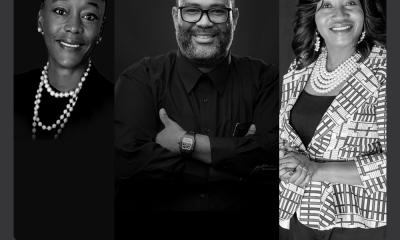CEO Insights
Ava Airways CEO Olivier Arrindell On Envisioning An Airline Of The Future And Connecting Africa With The Caribbean

Ava Airways CEO Olivier Arrindell is an experienced professional, business acumen and became one of the youngest members of the Caribbean American Chamber of Commerce and Industry with ongoing success in Latina America, Central America, North America, and the Caribbean. In this interview with Alaba Ayinuola of Business Africa Online, He talks about the Ava Airways brand, his mission to connect Africa with Caribbean and role as the new CEO. Excerpts.
Alaba: Kindly tell us about Ava Airways and the gap its fill?
Olivier: With Ava Airways, we didn’t want to just envision a bunch of loosely connected potential innovations. Instead, our goal was to create a cohesive concept for the future airline. To do this, we organized all of our design innovations around three core principles: “Taking Crazy Out of Flying”- making Ava Airways actually worthy of passenger affection; “Know the Journey”- designing touch points that are tailored to the unique moments comprising a passenger’s journey with Ava Airways; and, “Membership Matters”- creating a business model that goes beyond fare-based transactions.
Ava Airways is an Airline carrier of the Dominican Republic with a clear plan and vision to properly connect and operate scheduled flights via its Hub in this city of Santo Domingo, to the Caribbean, Latin America and Africa. The Service Ava Airways plans to provide would allow Latin American and Caribbean enraptures and corporations to properly connect with each other in commerce and trade specially in the tourism sector
Alaba: As its new Chief Executive, what are your set milestones in terms of growth and impact?
Olivier: In this role, I am responsible and accountable to the Board of Directors for carrying out my duties and my number one goal is to properly connect Africa with the Americas and the Americas with each other. Being the CEO of an airline is not the kind of job that someone just slips into. Typically, these airline big wigs worked their way up the corporate ranks. In some cases, they’ve been recruited from similar positions in other industries.
Historically, most airline CEOs have spent a considerable amount of time in some type of management structure. I did not have that kind of road map. I was appointed CEO of Ava Airways because of my row core entrepreneurial spirit. Entrepreneurial spirit is a mindset. It’s an attitude and approach to thinking that actively seeks out change, rather than waiting to adapt to change. It’s a mindset that embraces critical questioning, innovation, service and continuous improvement.“It’s about seeing the big picture and thinking like there is no tomorrow,”
“To me, being of African descendant, that’s the spirit I live by and is the way of approaching situations where you feel empowered, motivated, and capable of taking things into your own hands, “Like connecting Africa with the Caribbean”.

Companies that nurture an entrepreneurial spirit within their organization encourage their employees to not only see problems, solutions and opportunities, but to come up with ideas to do something about them.” Entrepreneurial CEO’s like myself tend to have a more innovative approach to thinking about their products or services, new directions to take the company in, or new ways of doing old tasks.
Alaba: One of your major priorities at Ava Airways is to connect Africa with the Caribbean and Latin America. What sparked the interest and why now?
Olivier: the second largest African population in the world is Brazil, The USA, Then Spanish Specking Americas, then we have the Caribbean. Why now you ask? Because now its our TIME !
Alaba: Could you tell us more about your Africa destination strategy with emphasis on your unique offerings?
Olivier: This is a technical question hahaha, for the simple reason I cannot provide key secrets to our strategy and game plan. Keep a close eye on Ava Airways and see the strategy manifest itself.
Alaba: How is the current global pandemic affecting your operations and how are you navigating the challenges in these dire times?
Olivier: To be frank we have been given a gift from the higher powers, because just in time for the launching of Ava Airways here comes Ms. Corona Virus with her attitude, so we have escape all of the issues that others are currently facing and I am great to the gift.
Alaba: What are the safety measures and assurance you have incorporated in your operations? Are you Post COVID-19 prepared?
Olivier: YES, we are. Ava Airways Director of SQS and the rest of the team shall implement all of the recommendation that is provided by IATA and Local Authorities.
Alaba: How would you describe the state of aviation in Africa and where do you see the industry in 5 years?
Olivier: I believe I am not the correct person to answer this question at this time, however I do see the state of Aviation in Africa as one of the same kind you are seeing today with the movement of people from Africa to Europe and North America to the movement of people from Africa to the Caribbean and Latin America.
Alaba: What is the future for Ava Airways in terms of its size, products and impact?
Olivier: I believe Ava Airways future is bright and you will be around to see what kind of product and impact we shall have on the industry.

Alaba: What is your leadership style and philosophy?
Olivier: Simple, Entrepreneurial Spirit. My fundamental believe is, if you want to make people happy sell ice cream!
Alaba: Your message to the industry and the critical stakeholders who depends on it for survival?
Olivier: Financial disciple and change the way you think.
B I O G R A P H Y

Olivier Arrindell was the Managing Director of Financial Planning, Investor Relations, & Corporate Planning for Grace Aviation Holdings, LLC, and in December of 2019 was appointed as the CEO of Ava Airways by it’s Board of Directors. In this role, he is responsible and accountable to the Board of Directors for carrying out his duties and possesses a demonstrated track record in interacting with a policy board. Mr. Arrimdell plans, coordinates, directs, and is responsible for all activities associated with the operation of Ava Airways and it’s related economic development activities.
During his career, Mr. Arrindell has been instrumental in several initiatives including the development of Antigua & Barbuda’s new International Airport and many others, in addition, he has led the communications efforts around Grace Aviation’s company’s investment negotiation with investment partners and debt offerings. Most recently, he played a key role in the development and communication of Ava Airways balanced capital deployment strategy plan for its commercial airline plans which have resulted in favorable terms and conditions through a dividend principle policy.
Prior to joining Ava Airways and leveraging his professional experience and business acumen, Mr. Arrindell became one of the youngest members of the Caribbean American Chamber of Commerce and Industry Inc.
Mr. Arrindell’s ongoing success in Latina America, Central America, North America, and the Caribbean has been facilitated by his knowledge of financial management, Strategic Alliances, airline/aviation strategist, and a track record of successfully pulling together exceptional teams and business partners.
CEO Insights
Crafting Exceptional Training Solutions for Luxury Professionals and Brands: A Chat with David Osadolor
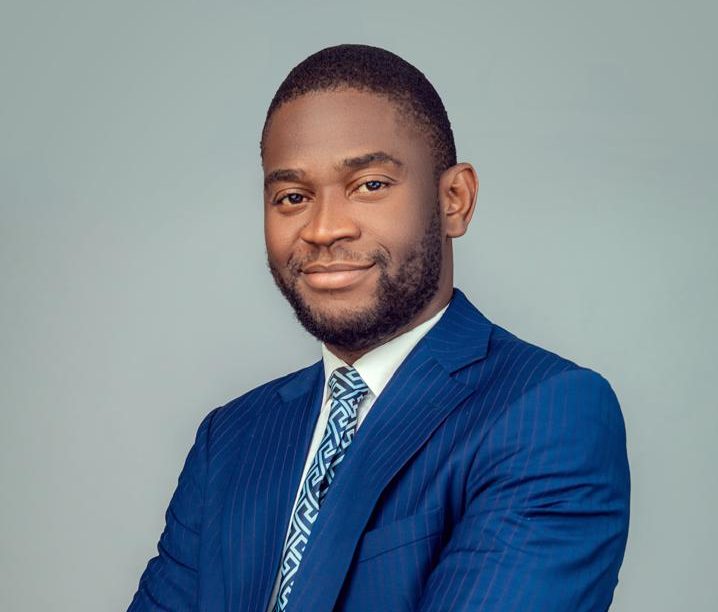
David Osadolor is the lead consultant at DameOasis Consulting and brings more than thirteen (13) years of experience in the luxury retail sector. His career journey has taken him through Switzerland, Dubai, and Germany, where he underwent extensive training and gained mentorship from leading industry figures. Over the years, he has successfully managed prestigious Swiss brands such as Hublot, Tag Heuer, Ulysse Nardin, Bvlgari, and Louis Moinet. His leadership extends beyond business, as he currently serves as the President of the Nigerian Young Professionals Forum, where he continues to inspire growth and innovation. In this exclusive interview with Alaba Ayinuola of Business Africa Online (BAO), David shares valuable insights on how he is empowering luxury professionals and brands through bespoke training programs, and more. Excerpts.
Alaba: Could you briefly tell us about DameOasis Consulting, and what inspired you to start it?
David: With over 13 years of distinguished experience in the luxury industry, spanning fashion, hospitality, interior décor, lifestyle, watches, high jewelry, high-end accessories, as well as premium wine and whiskey, I realized that while Nigeria’s luxury retail space is growing, there remains a significant knowledge and service gap compared to international standards. For me, the inspiration behind DameOasis Consulting stems from a passion to transfer the knowledge I’ve acquired over the years, and to raise the bar for luxury service and client experience in Nigeria.
Our focus is on enriching the professionals who engage directly with clients, whether through products or services, by equipping them with the right skills in luxury sales, customer service, cold calling, pitching, and overall client engagement. When service is elevated, the entire ecosystem benefits, and Nigeria can begin to reflect a true luxury culture.
The name “DameOasis” is also deeply personal. “Dame” combines my name, David, and my wife’s name, Mercy. “Oasis” connotes water, which symbolizes life and renewal. We see ourselves as springing forth something new and vital in Nigeria’s luxury space, the first of its kind dedicated to truly redefining service and experience.
Alaba: How do you define luxury, and what sets your approach apart from others in the industry?
David: Luxury has many definitions, but one of the most profound I encountered during a course with the LVMH group captures it in four dimensions:
- Emotions beyond ownership
- Creativity beyond trend
- Quality beyond aesthetics
- Legacy beyond desire
For me, any true luxury product or service must embody these four qualities. It must be more than a status symbol, it should stir emotions, reflect timeless creativity, go beyond surface beauty, and leave behind a lasting legacy. What sets DameOasis apart is our insistence on these principles. We don’t just talk about selling luxury products; we focus on creating experiences, shaping perceptions, and instilling the mindset required to serve clients at the highest level.
Alaba: What specific challenges do luxury professionals and brands face, and how does your firm address these challenges?
David: The biggest challenge we see in Nigeria’s luxury industry is the gap in service quality. While brands invest heavily in bringing products into the country, the client experience often falls short of global standards. In addition, the word “luxury” has been overused and misapplied, with many businesses claiming the label without truly meeting its requirements.
At DameOasis, we address these gaps by bridging knowledge and skill shortages, helping professionals understand what authentic luxury is and how to deliver it. Our trainings elevate both service and product delivery, ultimately driving customer loyalty and increased revenues for brands.
Another challenge is cultural, many clients still prefer shopping abroad, which drains capital from the local economy. Through our work, we’re fostering a cultural shopping shift by connecting high-net-worth individuals (HNIs) with local professionals and brands, ensuring they can enjoy the same quality of service and authenticity here in Nigeria.
Alaba: How do you tailor your training programs to meet the unique needs of each client?
David: Our approach is highly customized. Luxury is a broad industry, covering fashion, watches, jewelry, hospitality, lifestyle, Real Estates and automobiles, so we always tailor our programs to the specific sub-sector and the client’s needs.
When engaged, we don’t just accept an organization’s brief at face value. We conduct a thorough needs assessment, including speaking to staff, clients, and management. This allows us to pinpoint the real gaps and design training that directly addresses them.
We also balance global best practices with local realities. Having been trained by some of the best in the international space, we adopt global trends but adapt them to suit Nigeria’s dynamic customer culture, ensuring our programs remain both world-class and locally relevant.
Alaba: What topics or areas do your training programs typically cover, and how do you ensure they stay relevant and effective?
David: Our programs cover a wide range of topics, from core luxury sales and customer engagement to leadership, business transformation, and client experience management. Depending on the client’s sub-sector, we include specialized modules such as cold calling, luxury storytelling, clienteling, and emotional intelligence in sales.
To remain relevant, we constantly update our content based on international trends, insights from our global partners, and ongoing research. At the same time, we refine our materials to reflect Nigeria’s unique market dynamics, so participants can apply what they learn directly in their day-to-day roles.
Alaba: How do you measure the effectiveness of your training programs, and what outcomes have you seen?
David: We measure effectiveness through a combination of short-, medium-, and long-term assessments. Immediately after training, participants complete feedback forms, and we provide handbooks to HR teams for continued reinforcement.
Beyond that, we follow up with organizations to monitor how trainees are applying the skills. We also engage CEOs, HR leaders, and most importantly customers. If customers notice improved service and return to repurchase, then we know the training has delivered its intended results. Luxury is about building loyalty, and the ultimate proof of impact is customer satisfaction and brand loyalty.
Alaba: What feedback have you received from clients, and how has it shaped your approach to consulting?
David: Feedback has been overwhelmingly positive, but it has also been instrumental in shaping our evolution. Clients appreciate the practical, hands-on nature of our trainings, as well as the international perspectives we bring.
We actively encourage feedback, not just from trainees, but also from clients, mentors, international partners, and even through online engagements. This feedback helps us innovate in areas such as training delivery, networking sessions, technology use, and follow-up systems. We see ourselves as a learning organization, always adapting to serve better.
Alaba: Lastly, what trends do you see shaping the luxury industry in the coming years, and how will your firm adapt?
David: Globally and locally, several trends are emerging. One is radical transparency, particularly driven by Gen Z consumers, who want to know the full story behind any product they buy.
Another is the growth of the pre-owned luxury market, as ownership models evolve and more people seek to experience luxury in flexible ways. We also anticipate stronger omni-channel experiences, with digital retail growing rapidly while physical boutiques evolve into experiential spaces where customers can immerse themselves in luxury.
Most importantly, the market will increasingly demand authenticity. The line between genuine and fake will become clearer, and only brands and professionals who deliver true value and service will thrive. At DameOasis, we’re preparing our clients for this future by ensuring they are trained to meet international standards, embrace technology, and remain authentic custodians of luxury in Nigeria and Africa.
CEO Insights
CANEX Creations Inc. appoints Osahon Akpata as Chief Executive Officer
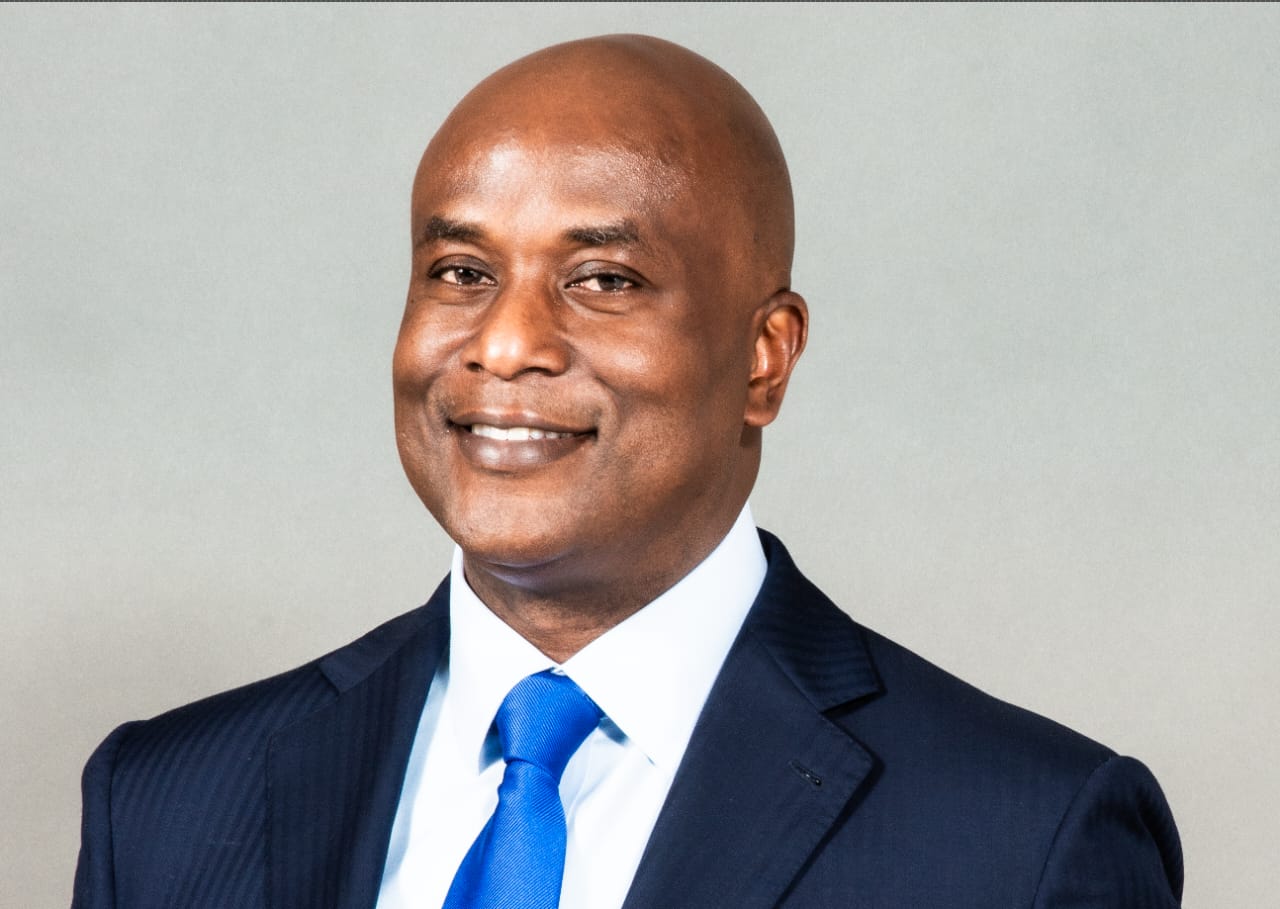
The Board of Directors of the CANEX Creations Incorporated (CCInc), a subsidiary of the Fund for Export Development in Africa (FEDA), has appointed Mr. Osahon Akpata as Chief Executive Officer to lead the company. The board confirmed the appointment during its meeting on the sidelines of the fourth Intra-African Trade Fair (IATF2025) which was organised by African Export-Import Bank (Afreximbank) in Algiers, Algeria, from 4 to 10 September 2025.
Until his appointment, Mr. Akpata was the Head of CANEX Creations within the Afreximbank Group, taking on a central role in CCInc’s journey since its inception. In that position, he led the operationalisation of the entity, shaping its strategy, establishing its governance framework and building its initial investment pipeline.
Prior to that, Mr. Akpata served at Ecobank Group, where he led the SME business, retail payments and strategic partnerships, building several new business units. Earlier, he worked at McKinsey and Company with responsibility for advising African banks and multinational clients on strategy execution. He began his career at Johnson and Johnson in the United States and earned awards for excellence in the pharmaceutical division.
Beyond his corporate roles, Mr. Akpata has supported high-profile projects in film, television, publishing and visual arts and is widely recognized as a trusted advisor in Africa’s media and entertainment ecosystem. He has cultivated strong global industry networks and has been a published author since the age of 11, with works that have appeared in Essence, Forbes, and Vogue Italia magazines.
Commenting on the appointment, Mrs. Kanayo Awani, Chairperson of the CCInc Board, said that, with a career spanning finance, strategy and business development, Mr. Akpata would bring a rare blend of expertise to the role.
“The Board was, therefore, very pleased to confirm him as CEO, particularly given the instrumental role he has played in building CCInc from the ground up and his proven ability to bridge investment expertise with deep knowledge of Africa’s creative and innovation economy. These attributes make Mr. Akpata very well suited to lead the company into its next phase of growth”.
Speaking on his appointment, Mr. Akpata said: “I am honored to take on this role at such a critical juncture for Africa’s creative economy. CCInc is uniquely positioned to unlock the full value of African intellectual property by driving commercialization, building global partnerships, and delivering returns that benefit creators and economies alike.”
Mr. Akpata holds an MBA in Media Management from Columbia University (USA), a BA (Hons) in Accounting and Finance from Nottingham Trent University (UK) and a diploma in Strategic Partnerships from IMD Business School (Switzerland).
CEO Insights
Building Sustainable Success: Insights from Olaide Olusoji-Oke, CEO of O3 Advisory
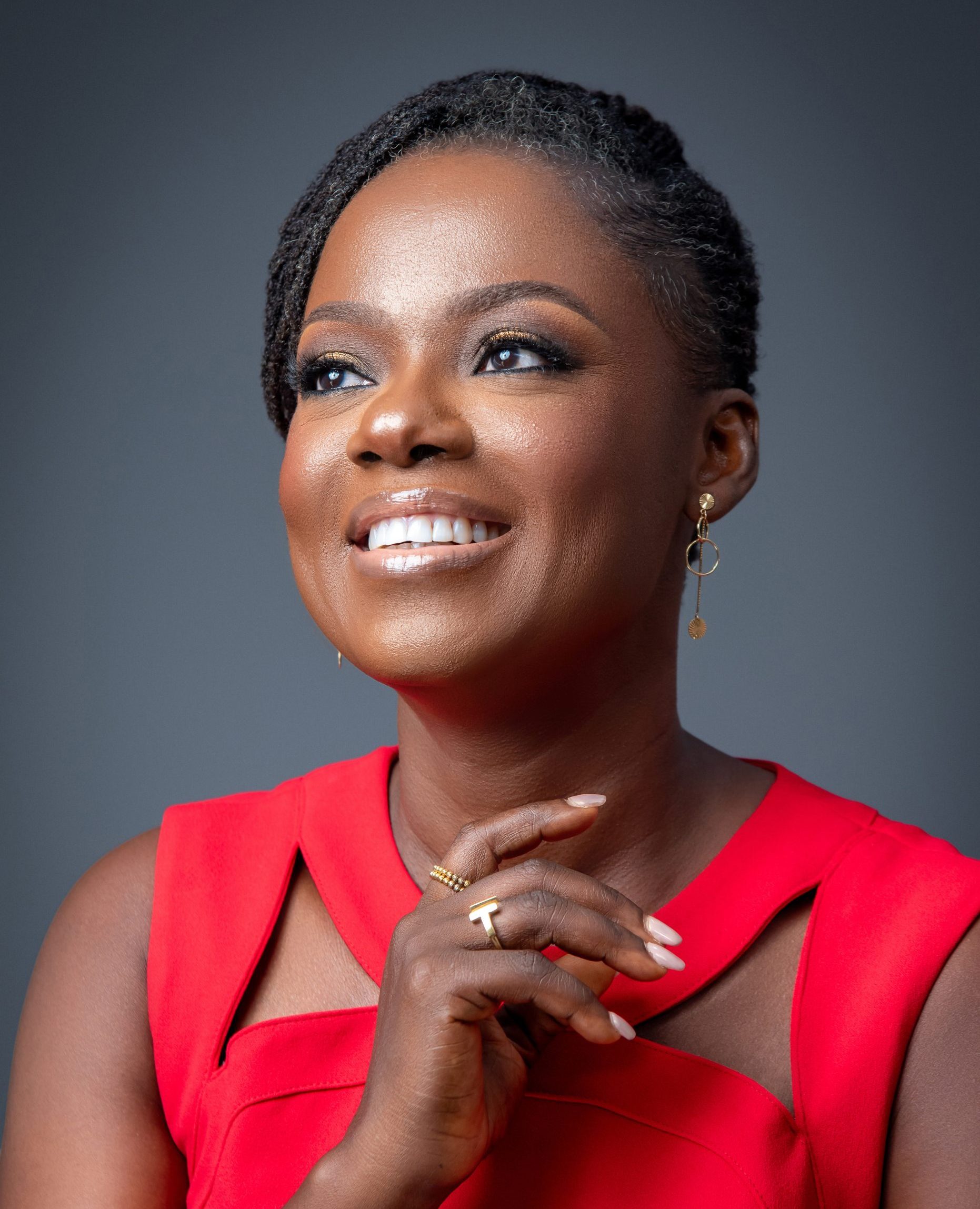
Olaide Olusoji-Oke is a seasoned finance strategist with over 20 years of experience in financial strategy, investor relations, treasury and liquidity management, auditing, IFRS reporting, taxation, and fundraising. She has worked across key sectors, including oil and gas, technology, healthcare, and investment. Olaide is a champion of building strong financial systems that enable businesses to unlock long-term value. She has held senior roles at ARM Investment Managers, and EchoVC Partners, a venture capital firm that invests from Africa into emerging markets and the US, where she led fund and portfolio operations across over 40 startups. Olaide currently leads as the CEO of O3 Advisory Limited. In this exclusive interview with Alaba Ayinuola of Business Africa Online (BAO), Olaide shares valuable insigts on strategic planning, financial management, and leadership. Excerpts.
Alaba: Briefly describe your experience working with founders and management teams to drive business growth and sustainability?
Olaide: Before O3 Advisory was founded, I had spent years working closely with founders and management teams across various sectors, helping them make sense of their numbers, tighten their processes, and build confidence in their decisions. That dedication hasn’t changed.
At O3 Advisory, we work with founders and management teams who are passionate about what they do but often overwhelmed by the backend of running a business, especially the finance and operations side. We step in to provide clarity. From designing financial systems that support decision-making, to building internal controls that reduce risk, I lead a team that doesn’t just advise; we roll up our sleeves and co-create sustainable structures. Clients often say we bring a calming clarity to their chaos, and I think that’s because we don’t just show them the numbers, we help them understand what the numbers are saying and how to act on them.
Alaba: How do you approach financial planning and analysis to drive business decisions?
Olaide: it comes to financial planning and analysis, I approach by starting with a clear understanding of the business model, goals, and current realities. I like to get into the details; revenue flows, cost drivers, operational leakages, and then use that data to build forecasts and scenarios that are realistic and decision-focused. It is not only about tracking performance; it is about asking the right questions and using the numbers to guide strategy, whether it’s for expansion, cost restructuring, or investor conversations. Corporately, this is how we empower business leaders, by giving them the clarity and confidence to make smart, timely decisions backed by solid analysis.
Alaba: Can you describe your experience with process development and implementation?
Olaide: Absolutely. One of the things I enjoy most is turning chaos into clarity through well-thought-out processes. My team and I have worked with a number of businesses where critical functions like financial reporting, approvals, or expense management were largely informal or inconsistent. We were able to intervene by first assessing what was working, what was missing, and where the risks lie. From there, we co-create practical, scalable processes that improve control, reduce errors, and free up leadership to focus on growth. For many of our clients, having those systems in place is the turning point from just surviving to building a truly sustainable business.
Alaba: What approaches do you use to manage risk and ensure business continuity?
Olaide: I take a very proactive and preventive approach to risk. I don’t believe in waiting for things to go wrong before we act. This is also the mode of operation at O3 Advisory, we help businesses spot potential issues early, things like weak controls, gaps in processes, or areas where money could leak. Then we build systems that protect the business and keep it running smoothly, even when unexpected things happen. We also make sure the team understands what to look out for, so risk management isn’t just a one-time fix, it becomes part of how the business works every day.
Alaba: How do you build and maintain effective relationships with founders, management, and other stakeholders?
Olaide: For me, building strong relationships with founders, management, and stakeholders starts with integrity and trust, this is built through consistency, clear communication, and mutual respect. I make it a point to listen deeply, understand their pain points, and stay accessible, especially when decisions get tough. On the corporate front at O3 we’ve also built in formal feedback systems and regular check-ins so that conversations aren’t just reactive, they’re part of the rhythm of how we work. That structure helps us align expectations, track progress, and make room for honest, strategic dialogue. Over time, it is that mix of personal connection and professional accountability that keeps the relationships solid.
Alaba: What strategies do you use to stay adaptable in a rapidly changing business environment?
Olaide: At O3 Advisory, staying adaptable is an integral part of how we move; it’s not something we wait to switch on when things change. We stay really close to what’s happening with our clients and in the business environment, whether it is regulatory changes, economic shifts or evolving business models, so we can respond early instead of reacting late. We’re big on learning, so the team is always sharpening skills and sharing insights across projects. And the way we build our systems and services? We keep them flexible on purpose, so if something shifts, we’re not scrambling, we’re adjusting. That’s how we stay grounded, even when the business landscape keeps moving.
Alaba: Can you share an example of how you’ve navigated a significant business challenge or crisis?
Olaide: Yeah. So we worked with a tech-enabled services company that had strong potential but couldn’t attract investors because their finances were all over the place, no proper records, unclear revenue streams, and zero visibility into their cost structure. We came in and cleaned up their books, built a solid financial model, and helped them understand and tell their business story in numbers. We also worked with their leadership to tighten internal controls and implement simple reporting tools. Within a few months, they pitched again, this time with clarity and confidence and secured funding from two institutional investors. That’s the kind of transformation we’re proud to lead.
Alaba: Lastly, what is your advice to budding entrepreneurs and policymakers in Africa?
Olaide: From years of working with entrepreneurs and policymakers in Nigeria and across Africa, my biggest advice is this: build with structure and integrity from day one. Passion will get you started, but it is systems, clear numbers, and strong values that will keep you going. For entrepreneurs, avoid commingling personal and business funds, as it is one of the fastest ways to lose investor trust and confuse your own progress. Keep clean records, stay accountable, and build with the future in mind. For policymakers, create environments that encourage transparency, simplify compliance, and support access to foundational business education. We’ve seen how powerful vision and discipline can be for an entrepreneur. When structure meets integrity, African businesses won’t just survive, they will thrive.
-

 Oil and Gas2 days ago
Oil and Gas2 days agoTotalEnergies, Chevron Push for Faster Permits, Better Seismic Data in Africa
-
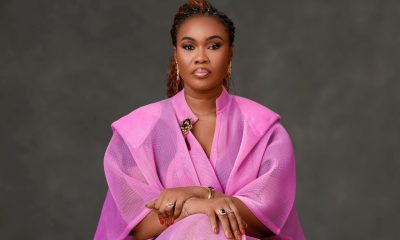
 Afripreneur8 hours ago
Afripreneur8 hours agoRevolutionizing Cross-Border Payments in Africa: An Exclusive Interview with Onyinye Olisah
-
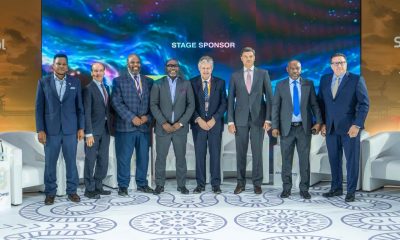
 Energy2 days ago
Energy2 days agoUnited States (U.S.) Political Will, African Reforms Signal New Era for Energy Investment




